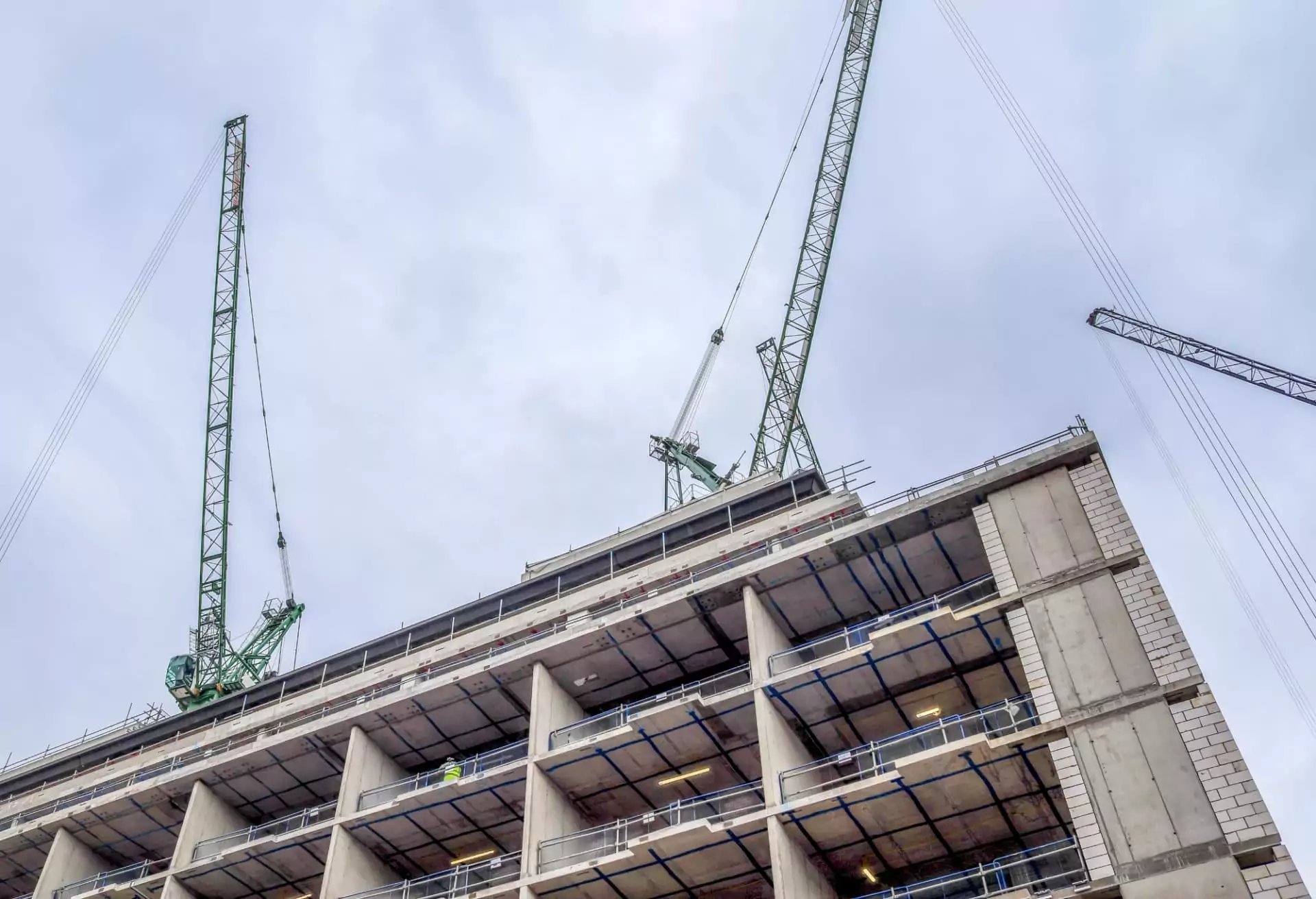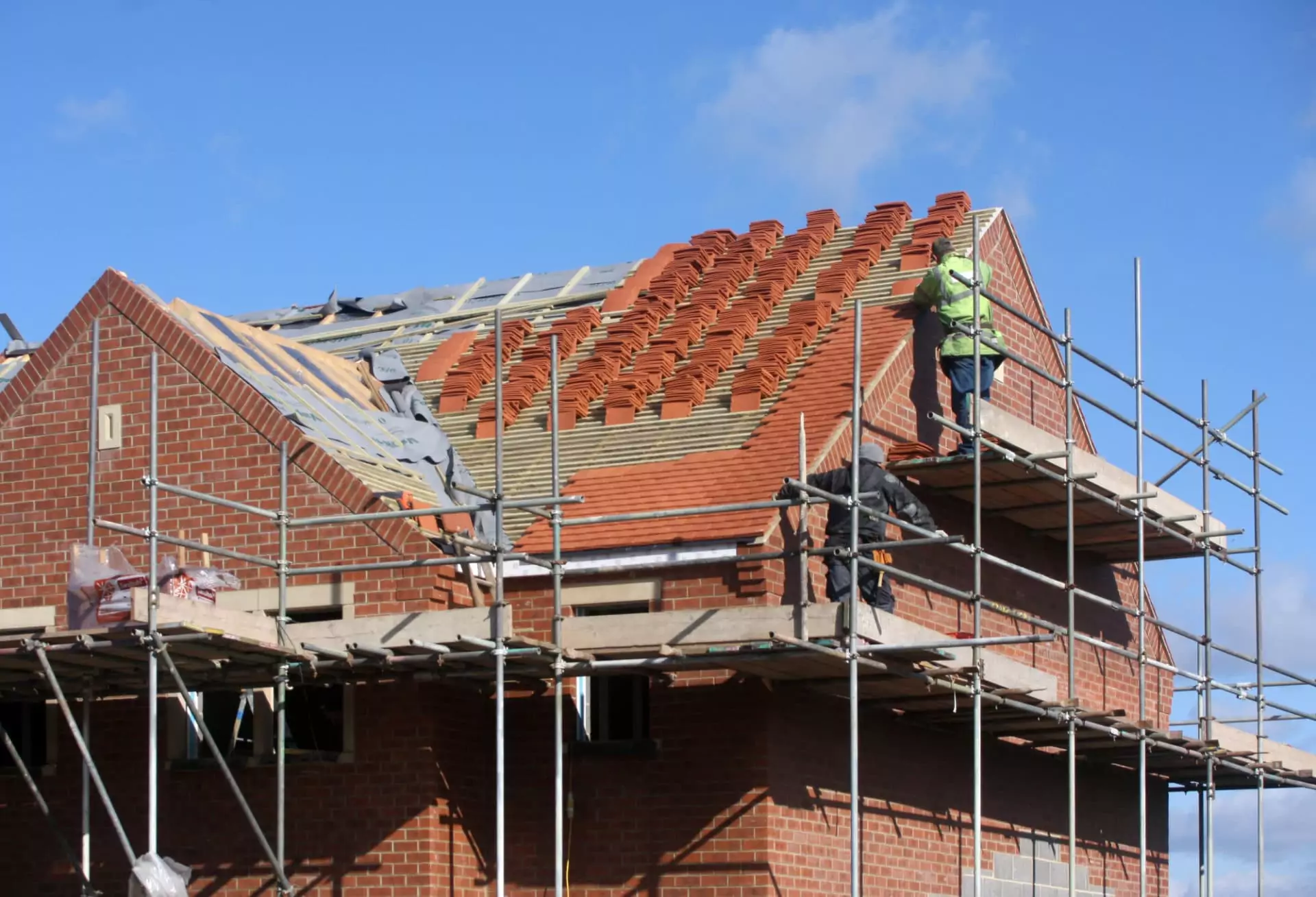
The cost of modular homes vs. traditional building
There are many advantages with championing the cause of modular homes today. Among them, one that tends to grab more headlines than any other is the potential for modular home projects to lower the overall cost of buy-in.
The Importance of modular construction since Coronavirus
The construction industry – like most industries – has been significantly affected by the recent Coronavirus outbreak. And the shutdown of building sites across the country does seem to have been something of a catalyst for modular construction, which didn’t grind to a halt in the same way.
While it hasn’t suddenly replaced traditional building, modular construction has been promoted as a method to boost the property market right now, to help overcome the issues caused by the construction industry lockdown. Modular construction also benefits from factors like being less labour-intensive than traditional building, making social distancing more viable, and factories are more controlled environments than building sites, potentially making it easier to establish safe working practices in this new world we all find ourselves in.
This may not affect cost, but the value of reliable modular construction timelines is certainly something that could push this industry forward faster than anyone might have expected a few long months ago.
In addition modular build is better equipped to meeting the net zero carbon targets for 2050 – this in turn is another driver that is likely to increase the appetitive for modular construction in the market; and pose as an alternative to traditional build.
Ultimately, the market choices in respect of modular construction or other modern methods of construction are on the increase. This "availability of alternatives" will allow a wider range of products emerging, which will in turn have an impact on cost.

Are modular homes more cost effective?
Three main factors typically affect the bottom line cost of buying, building and installing any modular home. On paper, they’re not all that dissimilar to those that dictate the price of a new build. In a nutshell, these are:
- Location – area desirability, land prices, ease of excavation/installation, sales taxes, transport fees and so on
- Size and complexity – costs per square foot tend to be noticeably lower for modular homes, but it will be up to you to calculate the optimal balance of economy vs. space and comfort.
- Design – some quotes you’ll see for modular homes focus on baseline price for a ‘raw’ factory unit, so it’s always worth checking whether a price will include customisation options or utility access. In general standardised design tends to apply to the shell but customisation options become available to suit individual customer needs so that the end product is adaptable to local planning requirements and end-user needs.
- DFMA – Off-site construction also promotes Design for Manufacture and Assembly (DFMA), which follows the method of production used in the automotive industry. This assumes that simplifying/standardising design will allow easier manufacture and assembly. This in turn will lead to time-efficiencies and lower costs. DFMA doesn’t stop product customisation, so as mentioned above this will continue to be available to enable adaptability and choice to the end-user.
Modular homes reduce costs by being much quicker to build (a modular home can be built in as little as three days, whereas the average traditional build takes 32 weeks). Whether a particular project ends up being cheaper than traditional building depends on specific home designs and the cost of materials, plus the points mentioned above.
It is also considered that off-site construction including modular brings about greater productivity related efficiencies. So the greater the off-site/modular element there will be an associated positive impact on productivity and the time-to deliver products to the site.
Benefits of factory construction
Factory-based construction processes are fundamental in helping to reduce the cost of modular homes. Almost the entire build takes place indoors, and is largely mechanised. This tends to result in a shorter and far more predictable timeline.
Factory builds can mean reduced labour costs, because far fewer individuals are required to oversee a modular home build. You’ll also avoid any overheads associated with workers needing to ‘set up shop’ at your location.
In addition, material waste is typically far lower in modular construction than in traditional builds (see pg.66 of Offsite Magazine). As with any factory-made item, housing units are specifically designed to roll off the production line as efficiently as possible. By contrast, building on location to entirely bespoke plans tends to involve a good deal of estimation and guesswork.
Factory construction also allows the developers to create eco-friendly Passivhauses. A Passivhaus has a very low heating demand and can be heated or cooled by post-heating or post-cooling the fresh air that flows naturally around the home, without any need for recirculation.
How does modular construction reduce lead times?
In general, modular home construction makes it far more likely you’ll get an accurate, reliable breakdown of pricing and timescales before the project begins. The entire process is more linear and predictable in the way it unfolds. Throughout the planning, manufacture, site preparation and construction phases, shorter turnaround times almost always result in reduced expense.
For one thing, modular construction is a very high quality process, now largely based around advanced CAD (computer-aided design)/ BIM technologies. This immediately lowers the risk of encountering structural or layout issues during construction.
Where this is the case, a more robust and uniform supply chain in factory assembly also reduces the scope for encountering certain types of problems further down the line. Materials are always fully traceable, and aren’t exposed to unfavourable conditions or haphazard storage in any phase of the process. Supplies tend to be plentiful and consistent, as manufacturers generally have a greater number of projects on the go at any one time.
Checks and certifications
By contrast, potential longer-term issues arising from poor workmanship, design or supplier choices can be very difficult to identify midway through a build handled by multiple subcontractors. Indeed, the quality and speed of modular factory builds now regularly exceeds that of equivalent traditional designs, which remain heavily reliant on the competency and dedication of numerous individuals or companies.
Another easily overlooked factor in the smooth progress and short lead times for modular construction relates to issues of certification and code inspection. Factory builds typically benefit from all necessary third-party checks being performed as an integral part of the design and assembly process. This removes another common stall point for location builds, where inspections are carried out in situ, and problems flagged as they arise.

The green impact of modular construction & Passivhaus buildings
It’s widely understood that modular homes can provide much greener living spaces than even the most eco-aware bespoke builds. Moreover, prebuilt design will play an increasingly central role in shaping the future development of our housing landscape in the UK and overseas.
Here we should return to the Passivhaus. This eco standard could help the British construction industry reduce its carbon output by 80% - the UK government’s current legislative target. Passivhaus buildings reduce space heating requirements by 75%, compared to the average UK new build. And modular construction in factories allows the level of design and uniformity required to build a Passivhaus.
Below are a few key ways in which modular construction directly benefits local and global environments, and enables the building of Passivhauses:
- Modern factory builds are far more energy efficient, both in terms of the homes themselves, and the methods used to produce them
- Factory design uses modern, high-performance materials to ensure tighter seals, better heat retention, enhanced wear resistance, reduced waste, and sharper focus on issues like consumption, sustainability and recycling
- Modular homes provide a range of options in terms of utility hookups – depending on the most appropriate solution, they can either be mains-supplied, or run on low-impact tank storage, battery, LED and recycling systems
- Reduced need for material and labour transport during modular construction means a significant reduction in the overall carbon footprint of a given project
- It’s a self-feeding cycle: the more modular homes are produced, shipped and constructed, the more efficient their design and manufacturing processes become
- Land development for modular homes tends to be carried out on new plots, using the latest and most eco-aware techniques available
- Because techniques like soil surveys and exploratory digging are fairly standard aspects of plot selection, the location of modular homes often ends up being more environmentally sensitive than for many other building types
Our services
At Foot Anstey, we firmly believe that modular construction and other modern methods of construction (together MMC) represent a pathway to a more sustainable, cost-effective housing future. With a true advisory approach at the heart of how we operate, our cross-sector team advises funders, developers, suppliers and public sector bodies - including housing associations - on all aspects of MMC.
We bring dedicated expertise and oversight to project areas ranging from timely delivery, asset management, building next-gen housing stock and streamlining supply chains, through to social value generation, sustainability factors and carbon reduction. Using our knowledge of the industry and connections with key industry operators, we’re able to track major trends and sector disruptions in relation to issues including data handling, net zero carbon construction, and mobility/access.
If MMC is a route you’re considering, you’ll find our team is dedicated to supporting you at every stage in the lifecycle of a new modular development project. Our full range of project oversight, financial and legal expertise in the real estate sector includes:
Demand for housing, infrastructure and commercial space is growing – and developers, policymakers and investors need to respond. We can support you at every stage in the lifecycle of a development project.
Our long-standing expertise in planning law means we’re ideally positioned to back you during those vital first steps in building projects of all sizes. We are aware of local law requirements in both England and Wales. We work with key decision-makers at all levels in your organisation and beyond, helping to ensure your biggest ideas start heading in the right direction from day one.
Our team is on hand to back you every step of the way when the time is right to move on a potential real estate investment. We understand that a sharp eye for detail is crucial in making fast, effective responses when acquisition or disposal opportunities arise.
There are countless complex challenges involved in running a modern commercial enterprise of any size, regardless of whether or not there’s an in-house legal function at your disposal. We deliver value beyond the purely financial by getting to know and understand our client’s businesses, helping to deliver tailored support across the board.
Navigating areas of inherent risk is a key element in all successful business ventures, and never more so than when approaching key phases in major projects, infrastructure and construction work. Our legal services are based on gaining an in-depth understanding of your company, using insight and experience to help you plot a safer course through all areas of assessment and management risk.
Regular subtle shifts in today’s economic and political landscapes have resulted in a property market seemingly in a constant state of flux. By assembling one of the largest such teams in the UK, Foot Anstey is uniquely placed to provide you with a full suite of conveyancing services delivered by leading experts in all aspects of this fast-moving market.
Property deals often appear inherently more vulnerable to sources of potential legal dispute than many other investment projects. If mishandled, these may prove costly in terms of missed opportunities, loss of revenue, or even damage to individual and company reputation. We offer extensive, in-depth experience covering all aspects of commercial and private property litigation, as well as agricultural, greenbelt and brownfield contract law.
Achieving procurement goals in a pragmatic, cost-effective manner is an increasingly pressing demand for public bodies in all sectors. We offer invaluable insight and experience on both sides of the procurement process, supporting you in approaches to authorities and bidding parties through the direct backing of an expert law team.
At Foot Anstey, we have in-depth experience of feeding into government policymaking processes. As environmental lawyers, this gives us a distinct edge when it comes to forward-thinking approaches to some of the toughest sustainability-related questions facing businesses today, taking account of local law requirements in both England and Wales.
Demand for housing, infrastructure and commercial space is growing – and developers, policymakers and investors need to respond. We can support you at every stage in the lifecycle of a development project.
Our long-standing expertise in planning law means we’re ideally positioned to back you during those vital first steps in building projects of all sizes. We are aware of local law requirements in both England and Wales. We work with key decision-makers at all levels in your organisation and beyond, helping to ensure your biggest ideas start heading in the right direction from day one.
Our team is on hand to back you every step of the way when the time is right to move on a potential real estate investment. We understand that a sharp eye for detail is crucial in making fast, effective responses when acquisition or disposal opportunities arise.
There are countless complex challenges involved in running a modern commercial enterprise of any size, regardless of whether or not there’s an in-house legal function at your disposal. We deliver value beyond the purely financial by getting to know and understand our client’s businesses, helping to deliver tailored support across the board.
Navigating areas of inherent risk is a key element in all successful business ventures, and never more so than when approaching key phases in major projects, infrastructure and construction work. Our legal services are based on gaining an in-depth understanding of your company, using insight and experience to help you plot a safer course through all areas of assessment and management risk.
Regular subtle shifts in today’s economic and political landscapes have resulted in a property market seemingly in a constant state of flux. By assembling one of the largest such teams in the UK, Foot Anstey is uniquely placed to provide you with a full suite of conveyancing services delivered by leading experts in all aspects of this fast-moving market.
Property deals often appear inherently more vulnerable to sources of potential legal dispute than many other investment projects. If mishandled, these may prove costly in terms of missed opportunities, loss of revenue, or even damage to individual and company reputation. We offer extensive, in-depth experience covering all aspects of commercial and private property litigation, as well as agricultural, greenbelt and brownfield contract law.
Achieving procurement goals in a pragmatic, cost-effective manner is an increasingly pressing demand for public bodies in all sectors. We offer invaluable insight and experience on both sides of the procurement process, supporting you in approaches to authorities and bidding parties through the direct backing of an expert law team.
At Foot Anstey, we have in-depth experience of feeding into government policymaking processes. As environmental lawyers, this gives us a distinct edge when it comes to forward-thinking approaches to some of the toughest sustainability-related questions facing businesses today, taking account of local law requirements in both England and Wales.

































































![Goodwill Hunting: MVL Properties v The Leadmill [2025] featured image](https://www.footanstey.com/wp-content/uploads/2025/03/beer-brewery-2024.jpg)